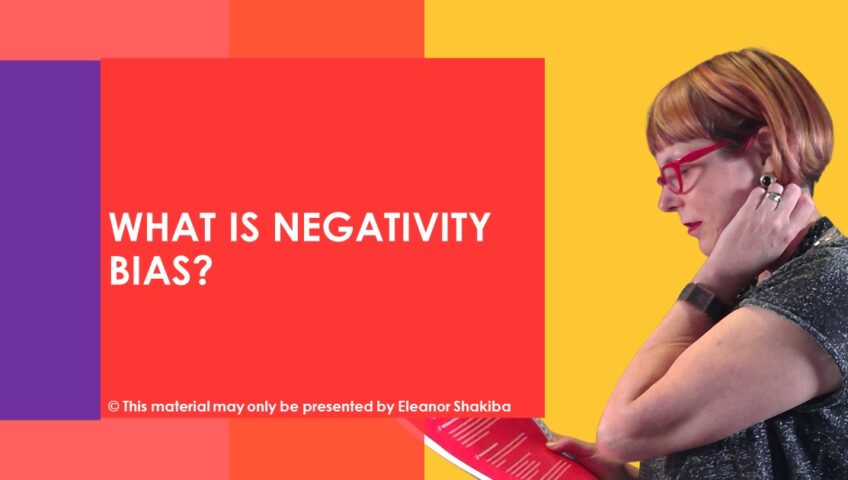Do people in your business tend to dwell on bad things and fail to notice the good? If so, your team is experiencing negativity bias. This is a natural tendency to focus on, remember and ‘learn from’ negative experiences more easily than positive events. There’s a substantial body of research in positive psychology which demonstrates the power of the negativity bias. Luckily, it is possible to shift perspectives, using a few simple tools from positive psychology. These tools are useful for leaders, resilience trainers and change managers.
A great deal of research has been completed on the topic of negativity bias. For example, studies by John and Stephanie Cacioppo and Jackie Gollan confirmed the theory that people tend to make decisions based on negative information more than positive information. Additional studies have concluded that when people are presented with a situation where they mainly gain or lose something, the potential loss has more of an impact on their decisions compared to the potential gains.
Research also suggests that negativity bias starts in infancy. Young infants pay more attention to positive facial expressions. By one year of age, the brain starts to respond to negative stimuli. Before long, negativity bias starts to creep in. If a team gets into the habit of focusing on the negative, the bias will soon be assumed to be an accurate representation of reality. Fortunately, there’s a lot you can do about this. Here are some ideas for countering the negativity bias as a leader, facilitator or positive psychology trainer.
Listen carefully
The words people use give you clues as to what they’re thinking. People who focus on negatives tend to use negative language. Words like ‘can’t’ or ‘never’ are clear indicators that people are filtering for what is not working in their lives, for example.
Use questions to help people reframe
Cognitive reframing is a very useful tool for helping people shift from negative to positive focus points. Ask people what is going right, what the advantages of change might be or how they benefit from a change. As you do this, they will slip into growth mindset mode.
Redirect attention
Make a conscious effort to redirect conversations towards optimistic, hopeful themes. Encourage your team to express gratitude or talk about what they’ve done to solve problems. This subtly programs them to pay attention to constructive feelings, ideas and events.
Positive psychology teaches us that negativity can be overturned. By replacing it with hopefulness and optimism, you gain greater confidence in your ability to reach goals. Positive psychology trainers can help develop these traits across your entire organisation. Contact Eleanor Shakiba today to discuss options for building positive team dynamics and vibrant organisational culture, using positive psychology.
About the author: Eleanor Shakiba
Eleanor consults in culture-building and behaviour change training. Her customers are people who want to embed positive psychology in teams and organisations. Since 1994, she has been teaching talented professionals how to think, communicate and lead in ways that build success. Eleanor holds qualifications in Social Anthropology, Positive Psychology, Counselling, Coaching, Adult Education and Neuro Linguistic Programming. Eleanor is the author of the Positive Psychology Toolkit for HR and L&D Practitioners. Download your free copy here.
